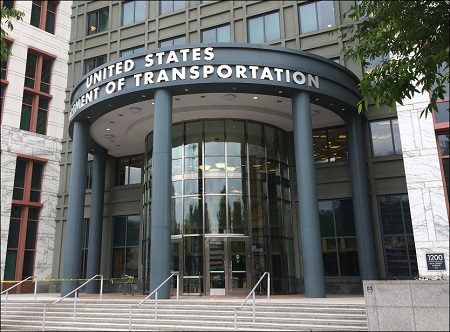With an important regulatory deadline approaching Jan. 1 for state departments of transportation, transit agencies and metropolitan planning organizations to begin reporting on their performance management, industry groups jointly asked U.S. Transportation Secretary Elaine Chao to delay the reporting period by one year.
The chief executives of the American Association of State Highway and Transportation Officials, the American Public Transportation Association and the Association of Metropolitan Planning Organizations made the request in a Dec. 7 letter to Chao.
The groups said that schedule adjustment would both give more time for members to absorb the requirements of various required performance management measures that federal agencies have put in place in recent years, but would also allow the agencies to complete work on one of those regulations so that reporting entities could proceed with more clarity.
“To this day, not all of the new regulations have been finalized by both the Federal Transit Administration and the Federal Highway Administration,” the groups said.
(This and other AASHTO letters to Congress and to regulatory agencies can be found on the AASHTO Comment Letter Portal website.)
Congress in its 2012 surface transportation law called MAP-21 required the Department of Transportation to develop rules requiring state DOTs, transit operations and MPOs to report on how they manage performance of their transportation assets. The letter writers noted that MAP-21 had set a single statutory deadline for the department to produce the rules.
As a result, USDOT agencies over time produced a series of performance measures with timetables for planning and implementing them.
The associations wrote that the “USDOT originally proposed a single calendar date whereby all 10 of the original interrelated regulations would have been made effective, including those rules addressing planning, highway safety, highway conditions, congestion/system performance and transit performance. Clearly, the challenges in developing the rules went well beyond the statutory deadlines in MAP-21 and resulted in many different effective dates that went years beyond the original mandates set by Congress and initial dates established by USDOT.”
The groups asked Chao to delay the reporting period to shift from the current Jan. 1, 2018 through Dec. 31, 2022 to one year later or Jan. 2, 2019 to Dec. 31, 2023.
“State DOTs, transit agencies, and MPOs are currently hard at work implementing the performance management provisions,” they wrote. “However, seeing the benefits that implementing a performance management program will have on the transportation program is one that will take five to 10 years to come to fruition.”
They said the delay would produce “three significant benefits” – better alignment of critical reporting dates, additional time for oversight agencies to finalize necessary guidance and develop the reporting infrastructure, and more time for implementing agencies to comply with the guidance and then coordinate with their partner agencies.
They also asked that the USDOT allow for a single update of performance measure target agreements by MPOs in either the MPO planning agreements or the documentation of the agreements in some other means outside of MPAs, depending on which process the MPO and state DOT agree to choose.
“We believe that a single update, tied to a common effective date of performance targets resulting from the shift in the performance reporting period for all of the performance measure targets required by FHWA (safety performance, pavement and bridge performance, system performance) and FTA (asset management targets), will significantly improve the efficiency and ability of MPOs to meet the performance management requirements,” they said.


